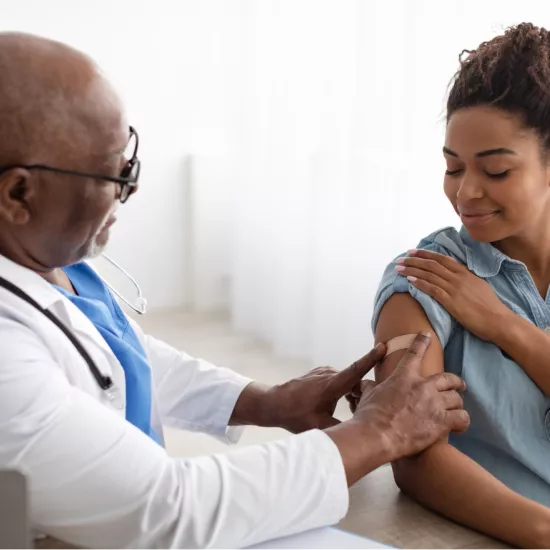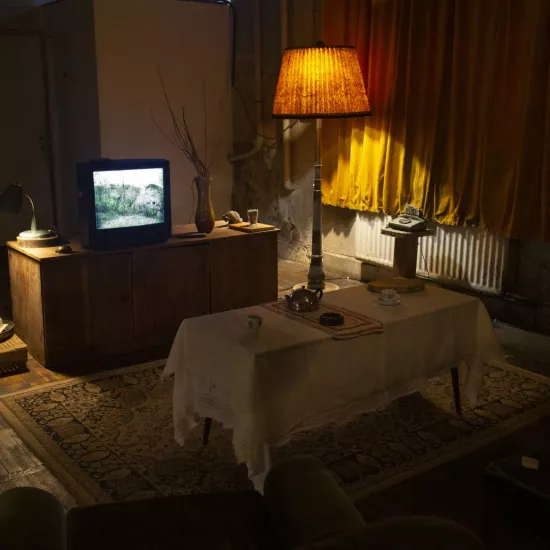UTM biomedical illustrator creates postcard to support disaster relief efforts in Beirut

Tuesday, Aug. 4, Farah Hamade woke and checked her phone. Her family chat group was crammed with messages. "Is everyone OK?” and, “What happened?"
It was 6 p.m. local time in Beirut, Lebanon when the first blast occurred, The Washington Post reported. A stockpile of ammonium nitrate stored in a warehouse exploded in the city's port. A second, stronger explosion obliterated buildings and devastated the densely populated area. Hundreds of people dead. Thousands injured. Hundreds of thousands displaced.
Then the video appeared in Hamade’s feed.
"The footage was shocking. I was in utter disbelief. My family sent photos of damage to their offices and homes, of destruction in the streets that are so familiar to me,” says Hamade, a second year graduate student in the Master of Science in Biomedical Communications at the U of T Mississauga.
“Thankfully my family is safe, but we all know someone who has been injured, left homeless or killed."
Lebanese-American, Hamade was born in San Francisco. She lived in multiple countries while growing up and considers Lebanon her second home. "I grew up visiting family in Beirut multiple times a year for holidays and summers. A big part of my family lives in Beirut and the surrounding areas," she says.

Her memories from Beirut are of family greetings at the airport, pillow forts in her grandmother's apartment, morning coffees on her aunt's balcony.
"It's a city filled with life and creativity, nestled between the sea and the mountains," says Hamad, a biomedical visualization specialist.
Already concerned about Lebanon’s current financial crisis and public protests, Hamade says she now worries about the coronavirus pandemic as victims made homeless by the catastrophe try to find shelter with family and friends.
Despite feeling overwhelmed and exhausted, Hamade says that she knows she can help, even from a distance, by raising funds and sharing news.
Hamade is selling postcard prints of a watercolour sketch that depicts the view, as she saw it in 2017, from her aunt's balcony in the Hamra neighbourhood of Beirut. She says the sketch represents both a happy memory and a hopeful future.
"All the funds raised from the postcards will go to disaster relief efforts in Beirut,” she says, explaining the first batch of donations will go to the Lebanese Red Cross and future donations will go to other NGOs working in the area.
Regardless of the reasons behind the catastrophe, Hamade says the important thing is that people are suffering and aid in the coming weeks is crucial.
"I hope that these postcard prints will encourage people to donate and maybe even inspire them to visit Beirut one day."
To donate, funds can be sent via Venmo to farahamade, or by Paypal or eTransfer to farahamade@gmail.com. Include a mailing address to receive a postcard. Donations can also be made directly to the Lebanese Red Cross.



